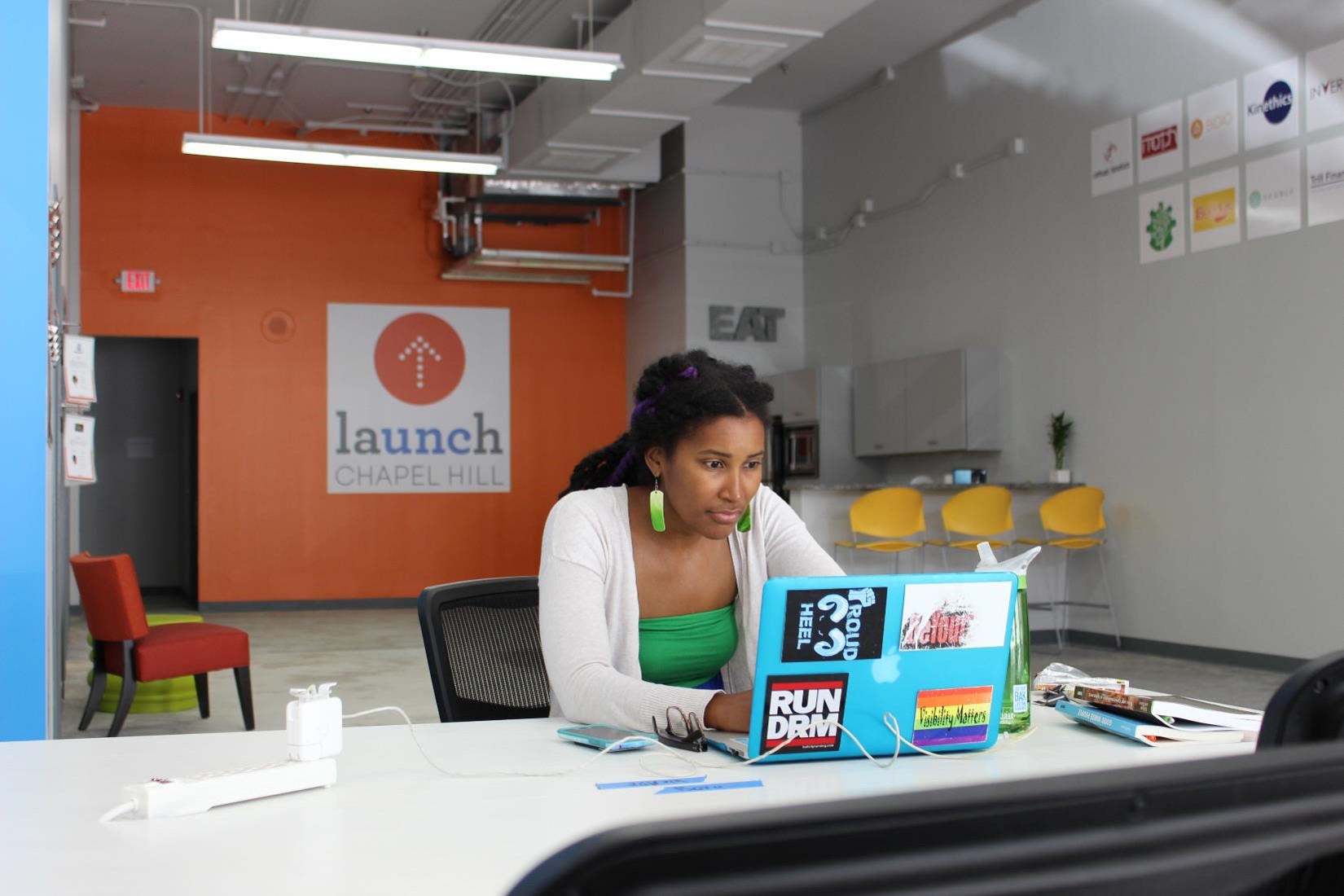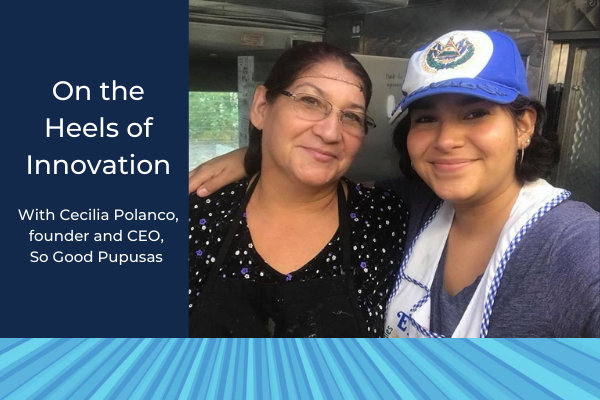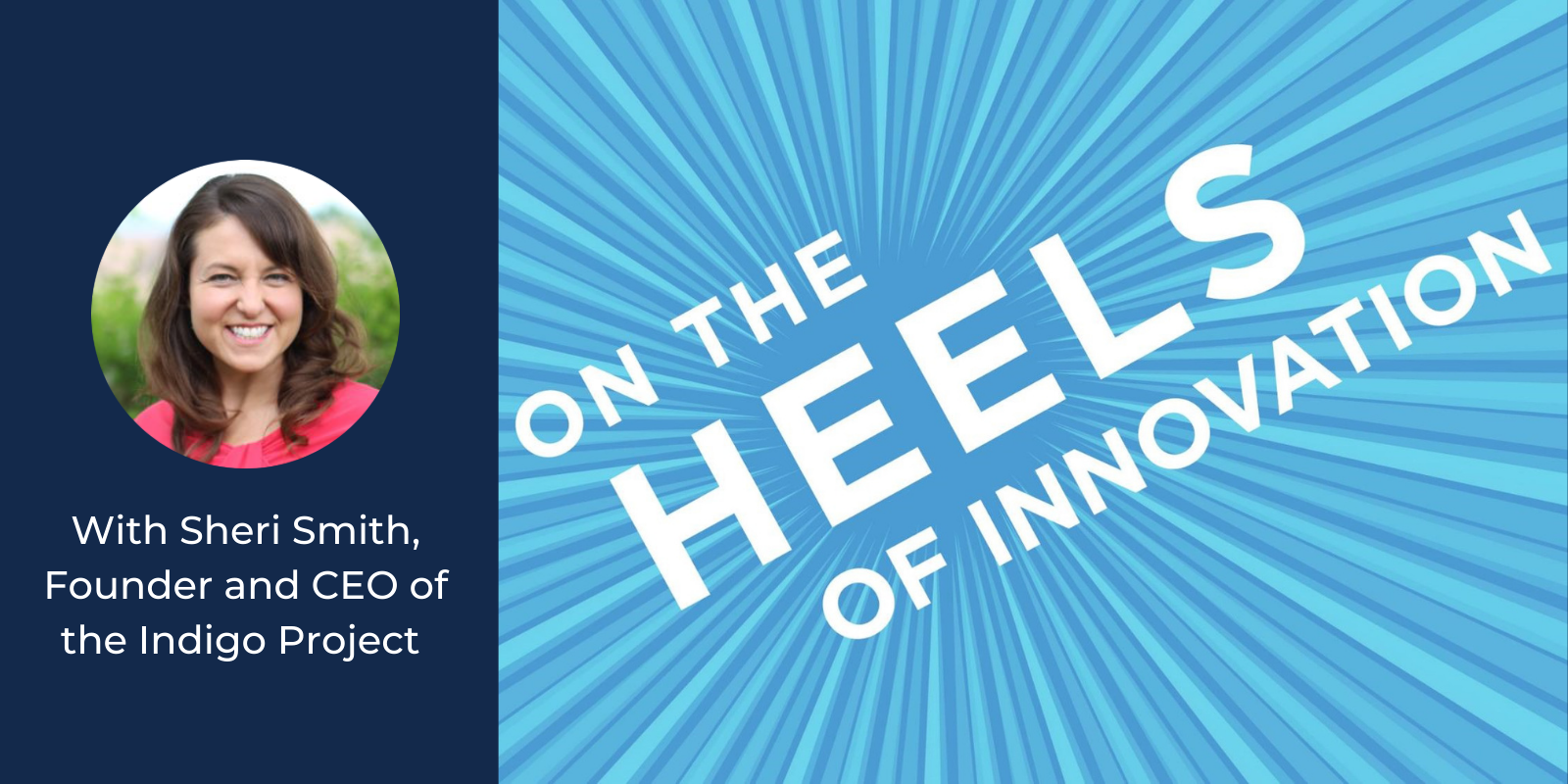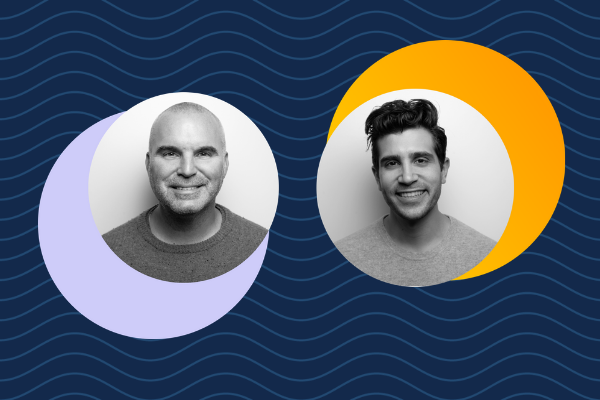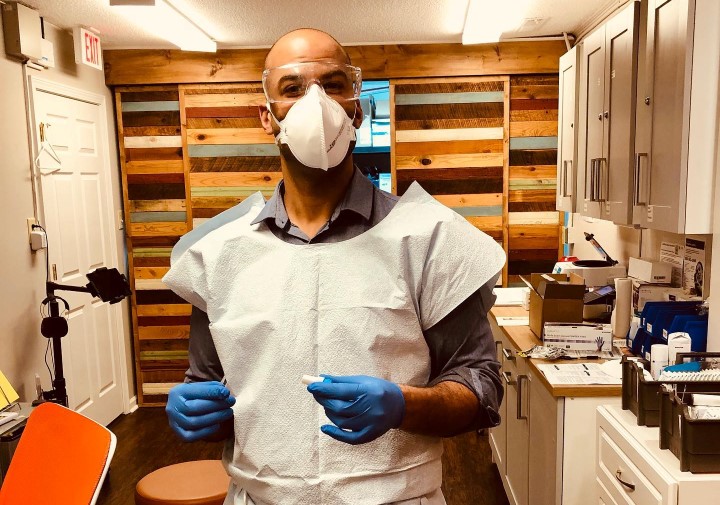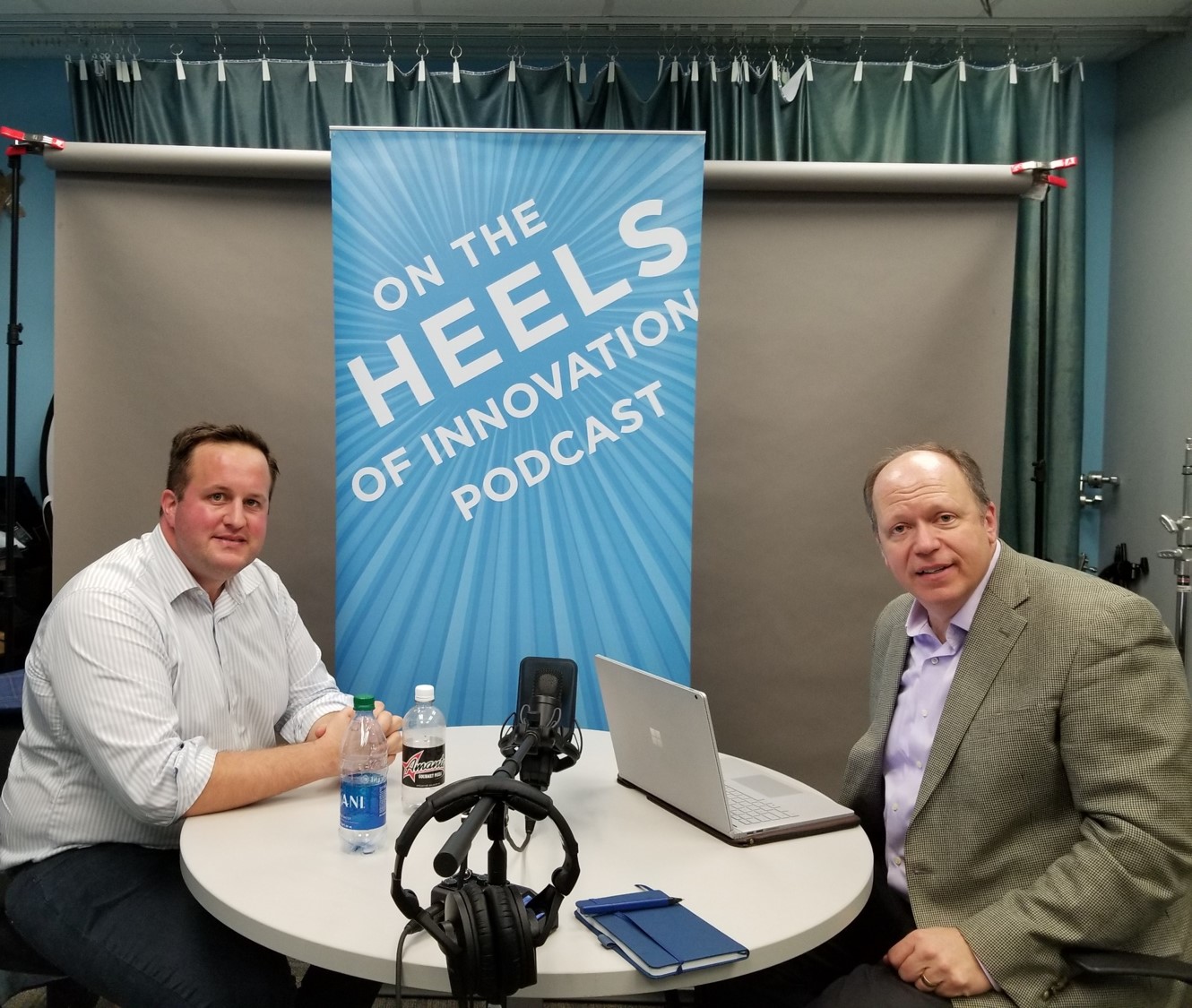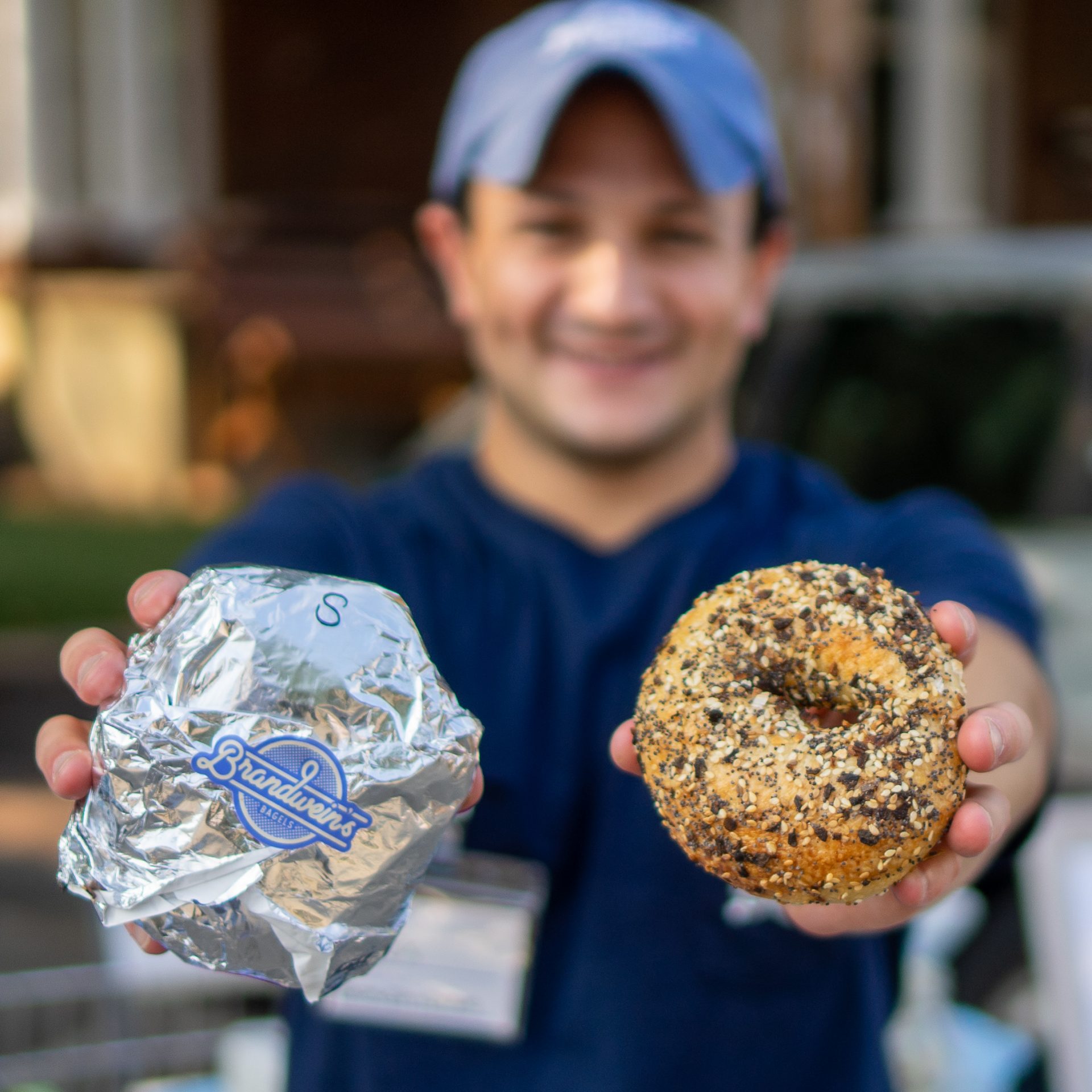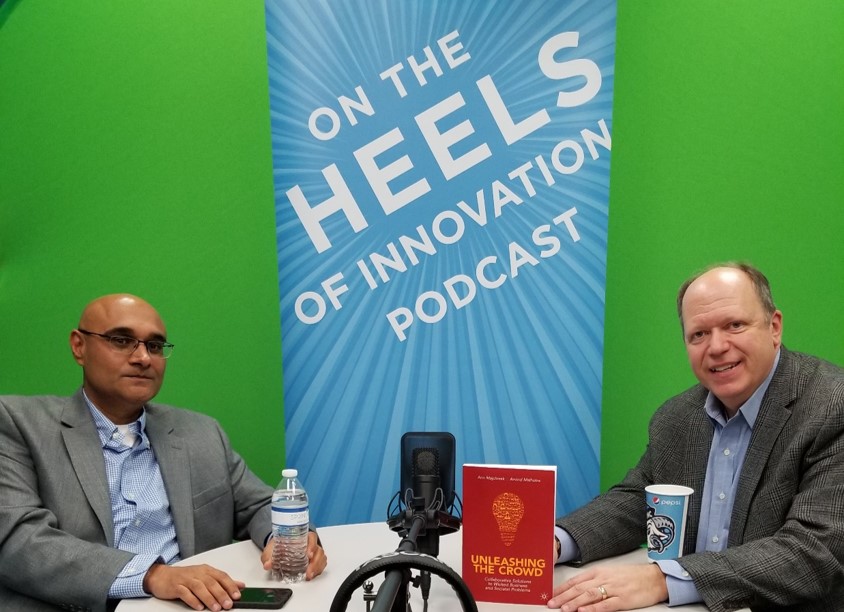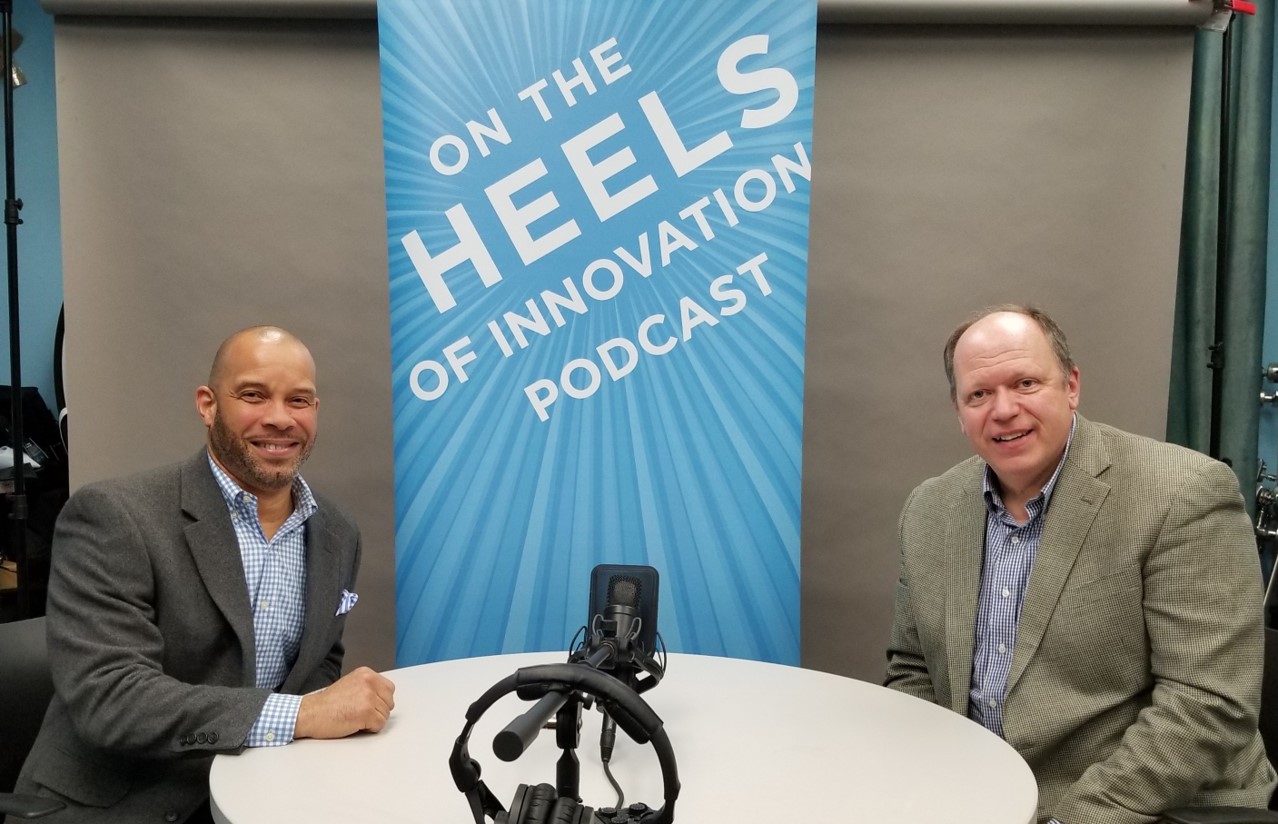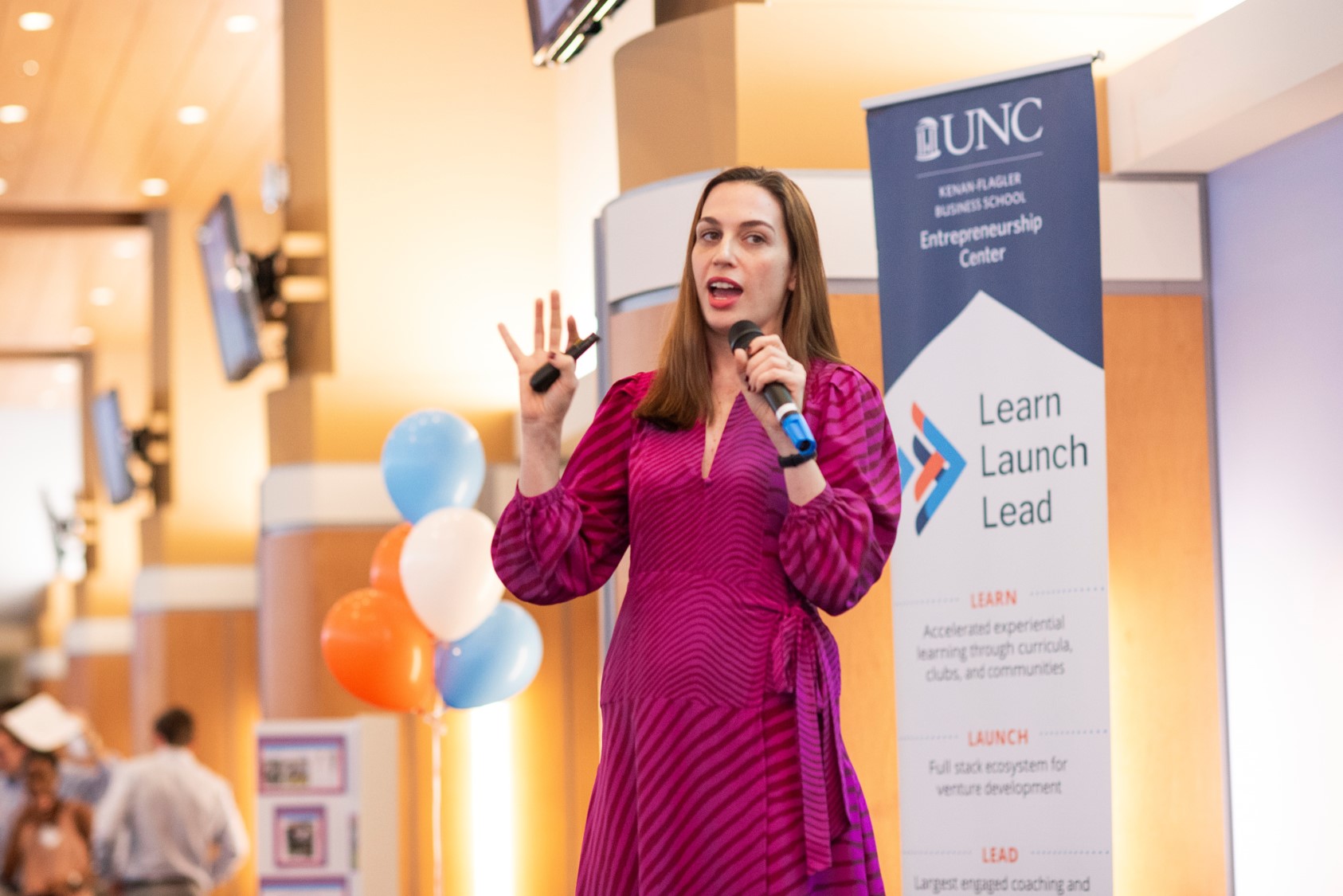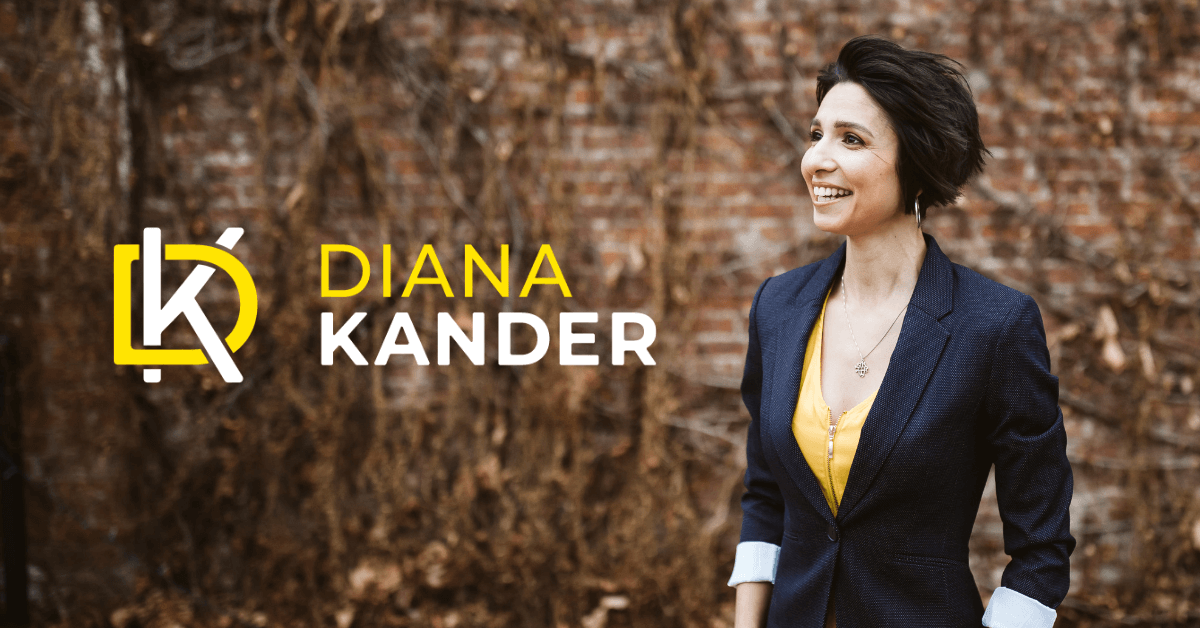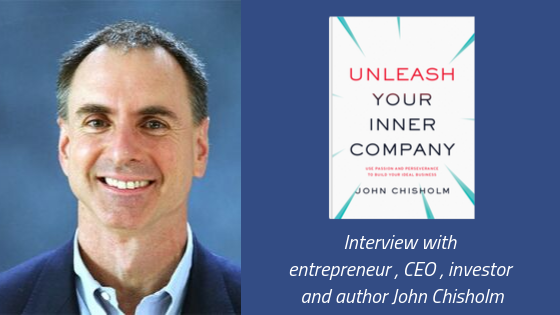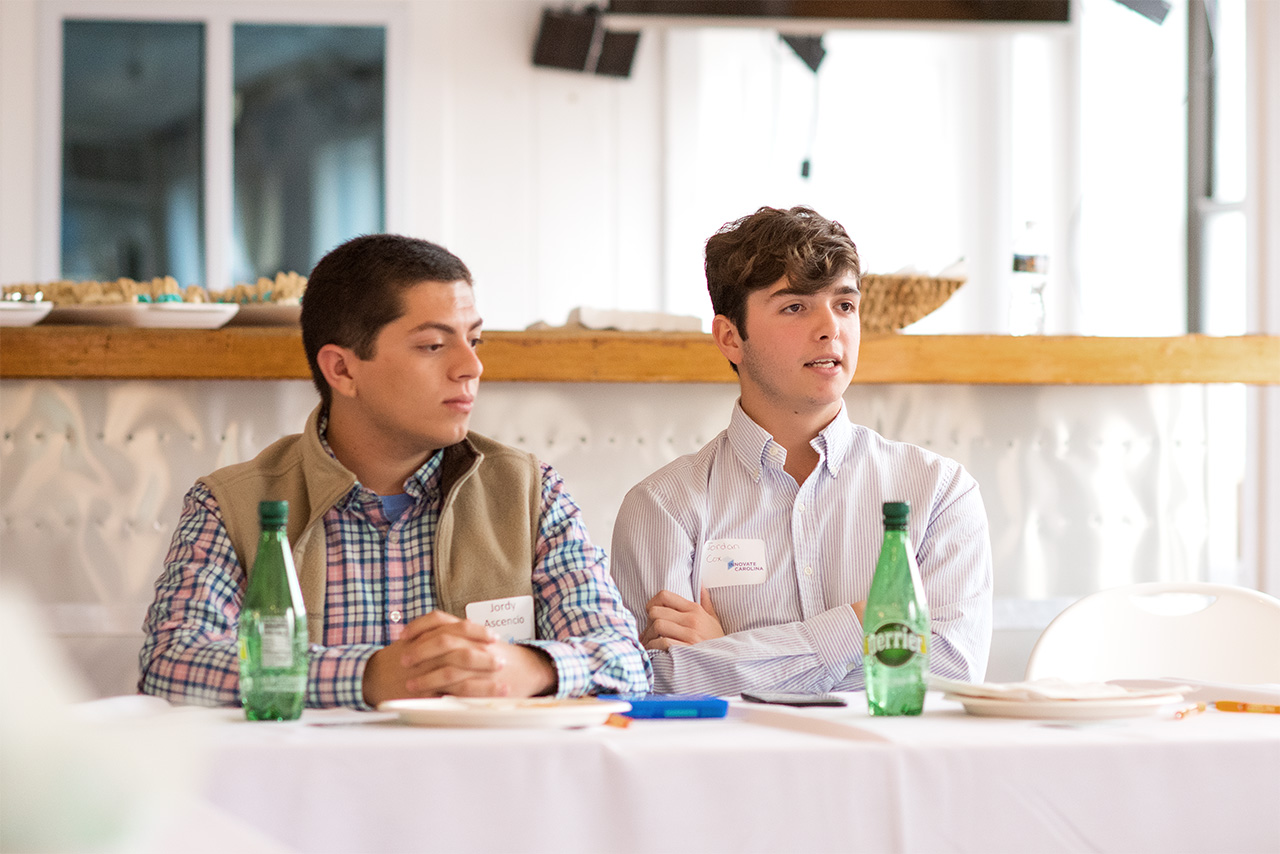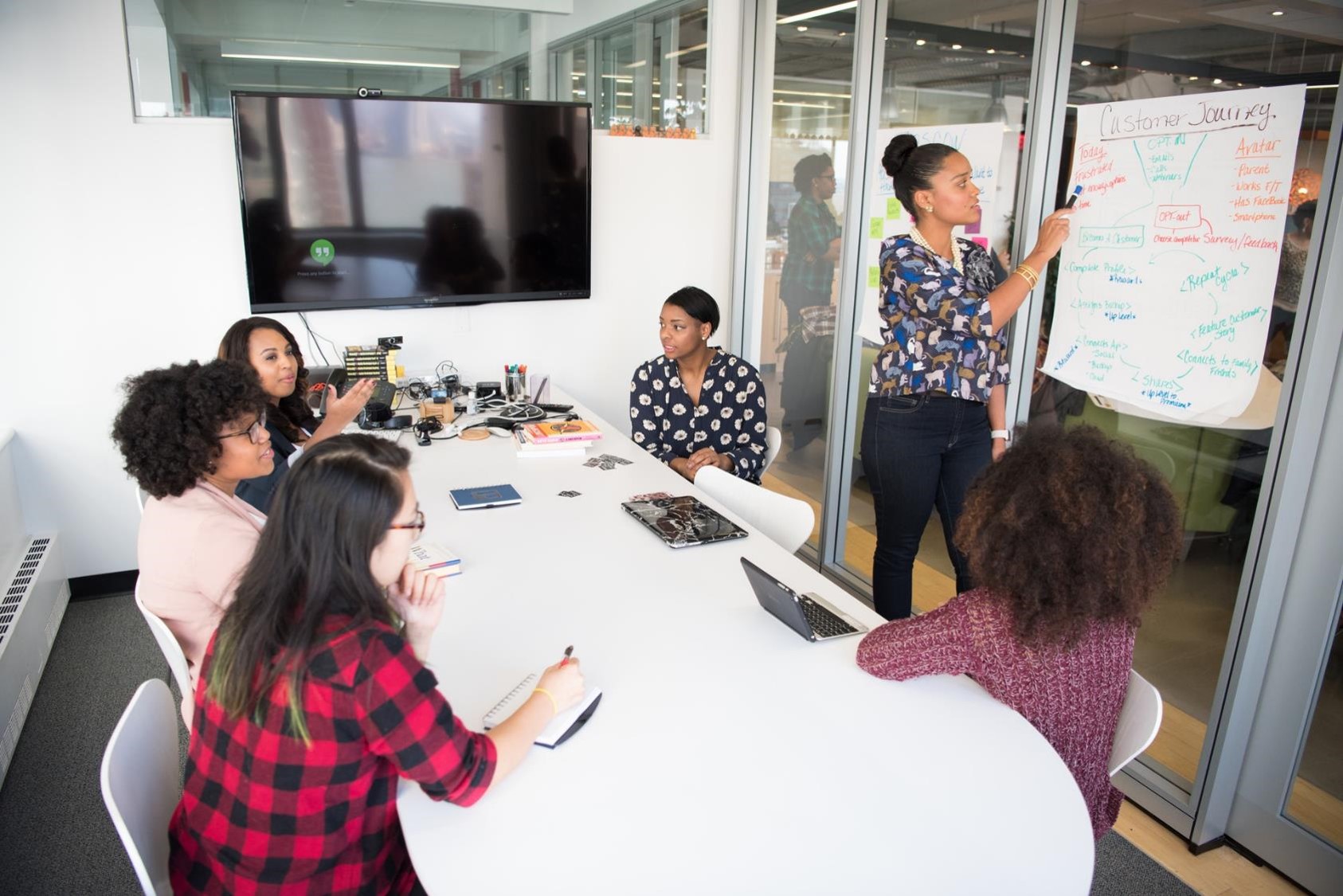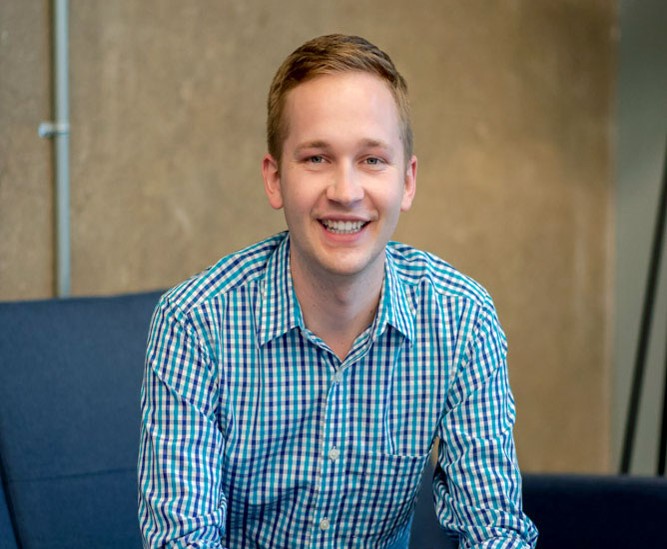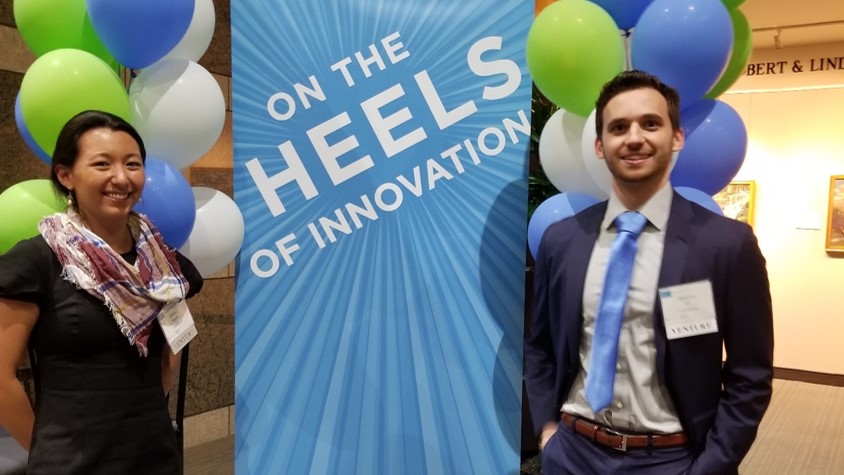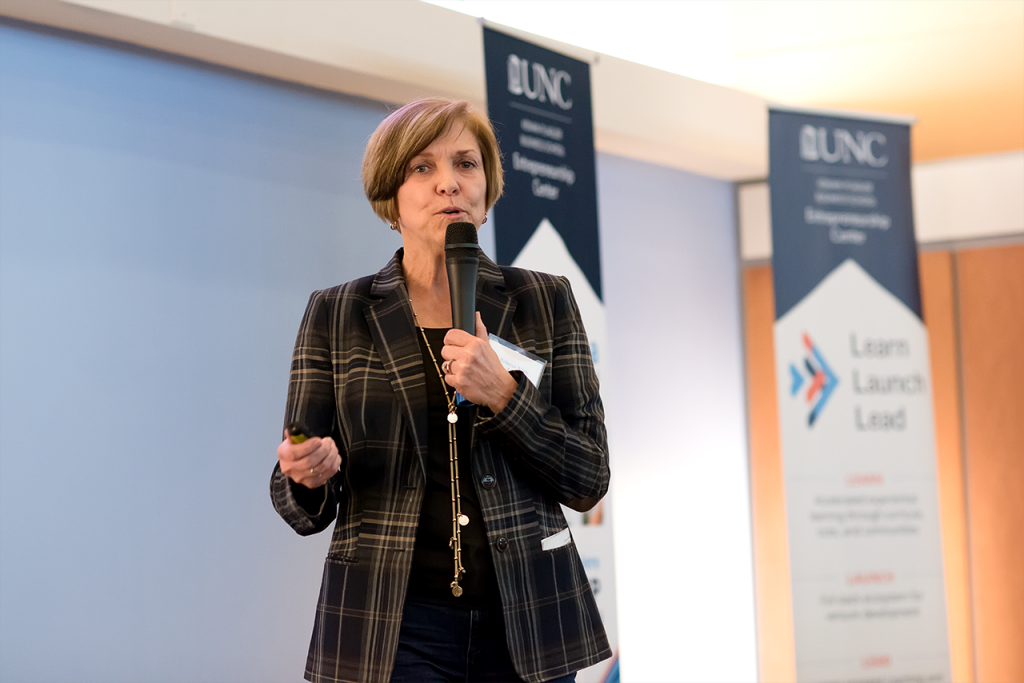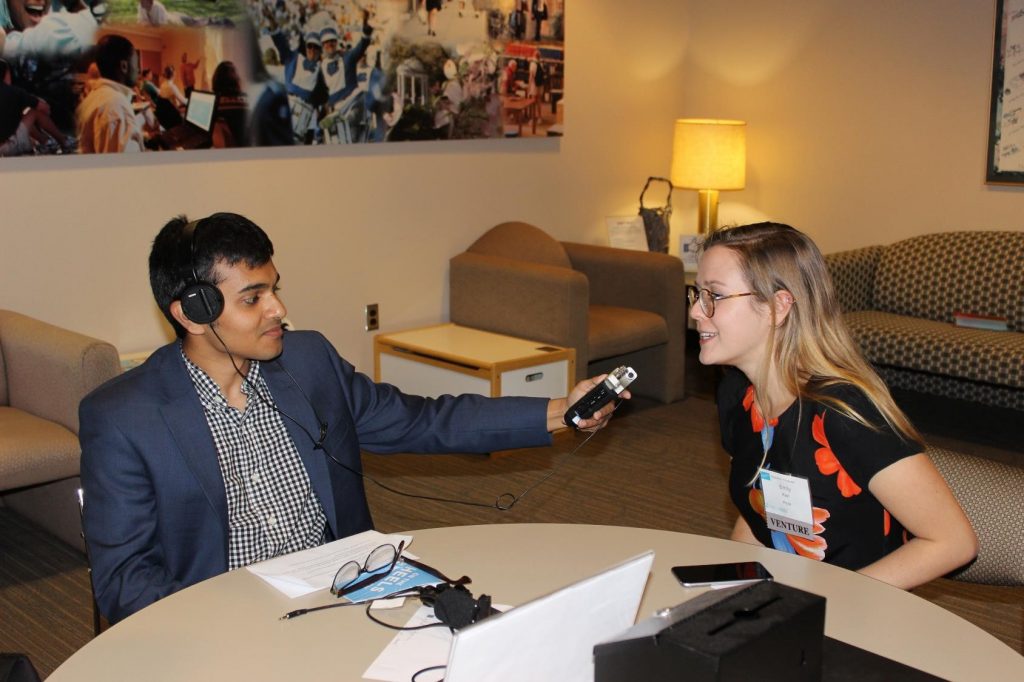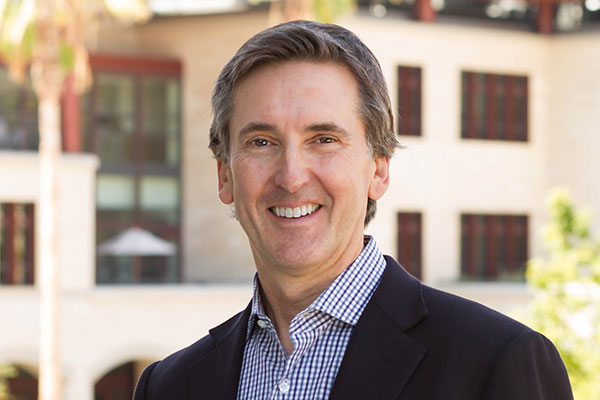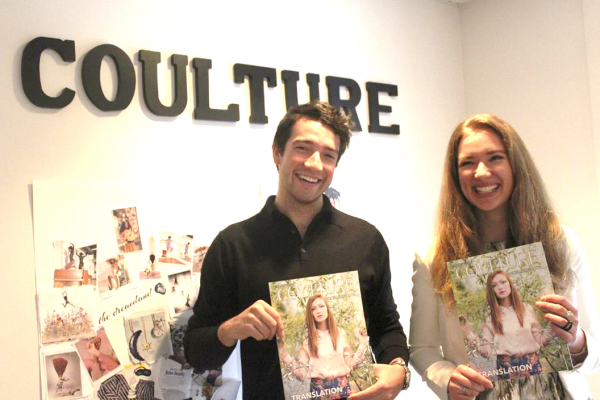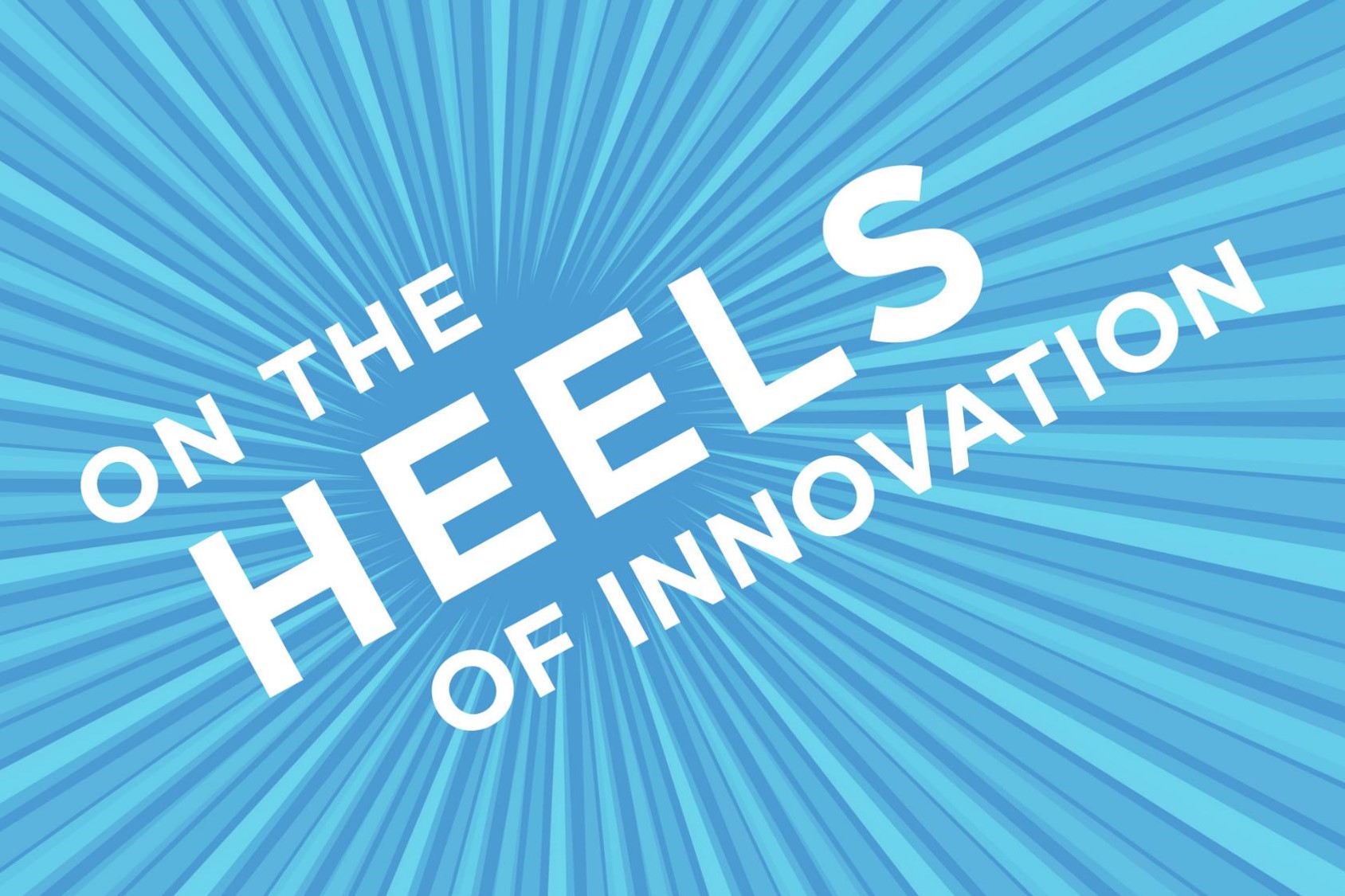
Podcast Series:
On the Heels of Innovation
POWERED BY THE UNC ENTREPRENEURS GENOME PROJECT
How is it that some people are successful in pushing their ideas further and faster than the rest of the world? What characteristics do they share? Which skills did they work to hone? And what lessons have they uncovered through each step forward and back that can inspire you to accelerate your own idea for a business or venture? This podcast explores the perspectives, insights and journeys of innovators and entrepreneurs who combined creative thinking and hard work to go beyond the expected.
You’ll hear from entrepreneurial trailblazers with strong Carolina ties and other renown experts who embody the spirit of Tar Heel entrepreneurship. The podcast is powered by the Entrepreneurs Genome Project, which consists of research conducted by the Entrepreneurs Lab class taught by Ted Zoller, T.W. Lewis Clinical Professor and director of the Entrepreneurship Center at the UNC Kenan-Flagler Business School. The project aims to unveil the DNA that makes up successful entrepreneurs.
Season 3
An entrepreneurs path to anti-racism education
With Ronda Taylor Bullock, co-founder and lead curator, we are
When Ronda Taylor Bullock enrolled in her doctoral program at the UNC School of Education in 2014, she planned to be an educator, not a social entrepreneur. Yet growing social unrest across the country drove her to become both. As co-founder of a social startup that provides anti-racism education to families, children and educators, Bullock discusses how her research and pedagogy help shape her business decisions and why it’s critical to inspire people to become more than just cognitive allies. She offers advice for social entrepreneurs on why it’s important to build a diverse executive board, ways to make social ventures financially sustainable, and how to maintain personal and professional boundaries when the substance of your work intertwines tightly with who you are as a person. Bullock also offers words of inspiration for students of color just getting started on their entrepreneurial journeys.
Global venture grind
With Niki Shamdasani (UNC-Chapel Hill alumna), co-founder and CEO of Sani; and Ritika Shamdasani (NC State student), co-founder of Sani
For two sisters who grew up in rural North Carolina, building a startup that fuses South Asian fashion with the perspectives of first-gen South Asian Americans has been an entrepreneurial education on a global stage. Niki and Ritika Shamdasani launched Sani to increase the visibility of Indian culture and attire by designing the types of outfits they’d always wanted, but couldn’t find. Get their take on confronting feelings of imposter syndrome as fashion-industry novices who had to navigate the intricacies of fabrics, costs, quantities, and supply chains that stretch more than 7,500 miles between Delhi, India and their North Carolina headquarters. Both sisters discuss why mentors matter and ways to tap into second- and third-level professional networks. Get their advice on how entrepreneurs can practice patience when grinding through extended business cycles that don’t include immediate returns but set the stage for long-term growth.
On the edge of thriving
With Cecilia Polanco, founder and CEO, So Good Pupusas
After several years of investing in her El Salvadorian-inspired, socially driven food truck businesses, 2020 promised to be a breakthrough year for Cecilia Polanco and the So Good Pupusas team. They’d paid off debt from purchasing trucks, refined their business model and were primed for profitability. Then the COVID-19 pandemic hit. In this episode, Polanco talks about how she’s using her entrepreneurial mindset to shift from short-term coping mechanisms to long-term pivot strategies. Learn how her venture, which also serves up social good in the form of higher education scholarships to undocumented and DACAmented students, is wrestling with its own business future and the issues of racial equity and food access. Polanco shares advice on what aspiring social entrepreneurs need to make sure they know to ensure that the positive social impact they make isn’t outweighed by unintentional ha.
Identifying the entrepreneurial spark
With Sheri Smith, founder and CEO of the Indigo Project
What if you had more than an inkling of who is most poised to become an entrepreneur? What if there was a way to identify K-12 students who may lack access to traditional resources, but who have characteristics they can use to build entrepreneurial success? In this episode, Sheri Smith describes how her venture the Indigo Project uses an assessment technology based on artificial intelligence to find young entrepreneurial-oriented students and inspire them to build their own ventures. What does it mean that entrepreneurs score high on individualism, innovation and futuristic thinking, but low on time management? Is their tendency to focus on external goals a help or a hindrance? And can entrepreneurial behavior really be predicted? Smith answers these questions and more. She also shares a case study of how the assessment technology helped identify students from the Navajo Nation Indian reservation who are now using their entrepreneurial spark to make an economic impact.
Social capital for all
With Patrick Sullivan, CEO of Bonsai; and Jake Rosenfeld, COO of Bonsai
For many, the scenario is familiar: You apply for a job, and 10 days later an email hits your inbox politely telling you that you’re not getting an interview. How do you break through the hiring barrier? And how do you tap into professional connections that only the most privileged traditionally enjoy? In this episode, the co-founders of Bonsai describe how the company’s online platform flips privilege into access. Learn about their method for matching talented students and young professionals from all backgrounds with highly regarded mentors via virtual one-on-one meetings. You’ll hear the co-founders describe how their own entrepreneurial journeys inspired them to create a systematic way to facilitate introductions that wouldn’t otherwise happen. If who you know – like leaders at Google, Apple, Amazon, McKinsey, Microsoft and other top organizations – is often more important than what you know, the Bonsai team discusses why it’s critical to level the playing field and create social capital for all.
The virtual intern life
With Zac Gonzalez, Carolina alumnus and former student intern at Kenan-Flagler Business School’s Entrepreneurship Center; and Asa Juhlin, Carolina student and summer virtual intern
In the early spring of 2020, many students at UNC-Chapel Hill and other universities had their summer internships set. Then the COVID-19 pandemic had other plans. During this podcast, we’ll hear from alumnus Zac Gonzalez, who worked at the UNC Entrepreneurship Center to develop the Innovation Internship Program, which included many students whose original startup internships were disrupted or morphed into virtual gigs. One of those students was Asa Juhlin, a sophomore who spent his summer working virtually in Hillsborough for Darkroom, a full-service digital agency located in Los Angeles and founded by a recent UNC alumnus, Lucas DiPietrantonio. Gonzalez shares how the new internship program works as a matchmaker to identify meaningful, project-based opportunities at high-growth startup companies and pair them with self-starter students like Juhlin. Gonzalez talks about the benefits of interning at startups, while Juhlin describes living out those benefits firsthand as he navigated the world of online collaboration technologies and sales business culture with growing curiosity and confidence.
The entrepreneurial pharmacist: Connecting clinic to community
With Franklin Roye, PharmD, president and co-founder of IndyCare; and Eshelman School of Pharmacy alumnus
Imagine that you have the flu. But now you don’t have to visit your doctor to get tested or go to the pharmacy to fill a prescription – all while potentially exposing numerous others. Instead, you have a telehealth appointment, and then someone drives to your house, where they test you and bring you the medicine you need. Franklin Roye, president and co-founder of IndyCare, shares how his company transforms independent pharmacies into integrated healthcare hubs that use these and other approaches to expand access to care in local communities. Roye explains how IndyCare had to adapt its business model during COVID-19, the value of co-founding a company with someone you trust, what he learned at the Launch Chapel Hill accelerator, and the rise in entrepreneurial thinking he sees among health scientists.
When the goal is going out of business
With Nick Black, co-founder and chairman of Stop Soldier Suicide; CEO and founder of GoodUnited; MBA alumnus of Kenan-Flagler Business School
Army veteran Nick Black’s entrepreneurial journey began when he moved into live combat just seven days into his first deployment. He learned to be part of a team and accomplish what seemed impossible. But after losing many friends and fellow service members to suicide over time – more than were lost to the enemy – he founded the nonprofit Stop Soldier Suicide to get service members the support they need. Black discusses how Stop Soldier Suicide thinks about its exit strategy: to find a solution so that the organization no longer needs to exist. Hear his perspectives on learning through failure, the difference between helping and solving, and why he launched a new venture called GoodUnited that allows other nonprofits to create meaningful experiences for every donor.
Work worth doing
With Alex Brandwein, MBA student at UNC Kenan-Flagler Business School and founder of Brandwein Bagels
Like many entrepreneurs, Alex Brandwein found that when the COVID-19 pandemic hit, he had to quickly pivot to support his business and the community. Find out how he shifted Brandwein Bagels to a pre-order, pick-up-and-delivery model that gave the company a way to use fresh, New York-style bagels to bring the local Chapel Hill community together at a time when people had to stay physically separated. How did Brandwein use an entrepreneurial mindset to meet a rapidly emerging business need? How did he work creatively to make his business part of a shared community experience? And beyond great food, what are the key ingredients Brandwein thinks all food entrepreneurs have to serve up to be successful now and in the future?
Can crowds solve wicked problems?
With Arvind Malhotra, H. Allen Andrew Professor of Entrepreneurial Education and Professor and Strategy of Entrepreneurship, UNC Kenan-Flagler Business School
With the world focused on the global coronavirus pandemic, decision makers wrestle with how to solve such “wicked problems” – massive challenges that are complex, have many interdependencies and are virtually impossible for anyone to solve by themselves. During this episode, business professor Arvind Malhotra discusses a timely approach to problem solving described in his new book “Unleashing the Crowd: Collaborative Solutions to Wicked Business and Societal Problems.” Why should we avoid the temptation to break these kinds of problems into smaller pieces? What’s gained by allowing larger groups of people to define problems while they solve them? And how can we let people openly contribute multiple ideas and perspectives at their own pace? Malhotra will introduce you to a method of thinking that can influence how we address many pressing issues: from climate change and hunger to educational inequity and the current COVID-19 pandemic.
Building Black Wall Street 2.0
With Doug Speight, serial entrepreneur, former executive director of American Underground, and UNC-Chapel Hill MBA alumnus
Many people are familiar with the entrepreneurial renaissance that’s taken place in Durham, NC. But do you know the history and on-the-ground dynamics that accelerated the city toward an economic and social resurgence that parallels its past? As a Durham native, serial entrepreneur and then executive director of American Underground, Doug Speight has deep business roots in the area and saw firsthand how the downtown startup hub and co-working space rapidly established the Bull City as a modern entrepreneurial epicenter. Speight reflects on the driving forces behind the city’s entrepreneurial present and future, but also on the current-day connections its early twentieth-century history, when Durham boasted a thriving downtown African American business district known as Black Wall Street. Listen to his behind-the-scene insights on how Durham’s decision to carve out an entrepreneurial hub that began in the basement of the American Tobacco complex brought together startups, investors and the community to spark an economic revival. Looking forward, Speight discusses new pathways for economic gain and diversity made possible as Durham’s entrepreneurial ecosystem invites more people from the black, Latinx and LGBTQ communities become tech business leaders.
The entrepreneurial outliers
With Amy Nelson, CEO of Venture for America
What motivates young, just-out-of-college entrepreneurial enthusiasts to go to work at startups and test their limits in Detroit, Cleveland, St. Louis and other cities that struggle to attract entrepreneurial talent? As Amy Nelson, CEO of Venture of America (VFA) describes, it’s the grit, optimism and integrity of this unusual breed of students that put them on the course to make an impact. But what happens when the life formulas that these students have always relied on – following the syllabus, making good grades and building resumes – don’t translate to the startup world? Nelson shares what it’s like to be part of a new generation of entrepreneurs who work with VFA to live and learn the startup life at real companies, while absorbing lessons they’ll eventually use build businesses of their own. Discover how this special, interconnected community of college grads sets out on two-year treks filled with pragmatism and positivity to push American entrepreneurship – and cities around the country – back to the top.
Season 2
An entrepreneur's resume: passion and people
With serial social entrepreneur and founder Alec Guettel
Serial social entrepreneur and Carolina alumnus Alec Guettel has secret for UNC graduates who are polishing their resumes: he’s never had one – at least in the traditional sense. In fact, the resume that propelled Guettel to found three companies, including leading solar energy company Sungevity, has been to follow his passions and find people that he loves working with. How did the leadership lessons he learned as a student working at the UNC Campus Y – where he founded the largest non-profit student organization in the country during his tenure – shape his entrepreneurial and team-building path? How do you balance building hot products and value-driven cultures? Does being transparent with your team really work? And what’s critical to understand about controlling and celebrating your successes? Whether you’re a seasoned entrepreneur or just starting out, listen for tips that will set your sights on what matters most.
Global entrepreneurship rising
With Elmira Bayrasli global entrepreneurship author, CEO and co-founder of Foreign Policy Interrupted, and professor at Bard College
Picture an entrepreneur in your head, and you probably place them somewhere in Silicon Valley – or at least somewhere in the United States. Yet, there are now more entrepreneurs in countries outside the U.S. than inside. And while many of these individuals have traditionally been “necessity entrepreneurs” – those who create ventures to live and survive – a growing number are now scaling up their businesses to operate like the ones we see in Silicon Valley: solving problems on a mass scale, employing thousands of people and attracting major investments. What’s behind the rise in global entrepreneurship?
Elmira Bayrasli, author of From the Other Side of the World: Extraordinary Entrepreneurs, Unlikely Places, discusses what she’s learned by studying the stories of entrepreneurs in different cultural contexts and geographies around the world. Are there characteristics that all entrepreneurs share that help them succeed wherever they live? What roles do technology and economic globalization play? Do entrepreneurs in the non-Western world respond to setbacks more effectively? And what’s the potential for entrepreneurship to influence foreign policy and help solve economic and social challenges on a global scale?
Gumption and Goals: Breakthrough Insights on Women Entrepreneurs
With New York Times Best-selling author, entrepreneur and innovation consultant Diana Kander
What makes successful women entrepreneurs tick? And what unique challenges do they face? Author and entrepreneur Diana Kander suggests that one helpful way for us to think about women entrepreneurs – and entrepreneurs in general – is as people who set and reach extreme goals. Kander delves into these insights about entrepreneurial gumption and other issues she’s uncovered while building her own ventures, consulting with corporate clients and writing her acclaimed books All In Startup and The Curiosity Muscle. From discussing what it takes for startups to launch disruptive products to exploring why more established companies peak, lose their curiosity and forfeit their relevance with customers, Kander offers perspectives that women entrepreneurs – and anyone with an idea to build upon – will find both enlightening and useful.
Activate your individuality: From passion to perseverance
With entrepreneur, CEO, investor and author John Chisholm
When starting a venture, you might immediately begin to identify the traditional assets that your business needs to cultivate in order to gain traction. But what about challenges or hardships faced along the way? How can those be turned into assets? And what steps can you take to develop your passion for innovation through the unique assets you have as a person?
In this podcast, get energized by the powerful insights that John Chisholm shares from his entrepreneurial journey, starting with two key attributes: passion and perseverance. As author of Unleash Your Inner Company: Use Passion and Perseverance to Build Your Ideal Business, Chisholm describes firsthand personal experiences, shares lessons learned as a company founder and provides insightful tips framed through the lens of his 10-step method for entrepreneurship. Get an introduction to his framework, which focuses not just on the venture itself, but also the most important asset driving your company forward – you. Learn how to use positive thinking shaped around who you are and what you’re passionate about to grow your business in ways that might surprise you.
Startup Success Formulas
With Carolina student innovators Jordy Ascencio of Carolina Thrift; and Aneesh Agarwal of Health Smart Technologies
Is there a common formula that students follow when they build successful startups? Or do they gain traction by following divergent paths that depend on individual scenarios?
Get the perspectives of two student innovators who participated in the UNC Innovation Showcase and are involved with ventures that make a social and economic impact in the community. Jordy Ascencio describes how Carolina Thrift, a community-oriented sustainability initiative that he works with to reduce needless waste in Chapel Hill, has embraced lessons learned and used campus resources to foster curiosity and growth. Then, Aneesh Agarwal discusses why it’s vital to identify customer needs, embrace persistence and develop a network of mentors. These practices are ones Agarwal honed when launching his startup Health Smart Technologies, a venture that helps the medically underserved find affordable health care services, medical screenings and preventative testing sites.
Entrepreneurs Within the Enterprise
With Christian Carlson, Director of State, Local and Provincial Government at Esri; MBA Alumnus, UNC Kenan-Flagler Business School
Most entrepreneurs who launch startups acknowledge that to be successful, you must be okay with taking risks. But how do you apply that same entrepreneurial mindset within an existing company or corporate structure?
Christian Carlson always had a goal to be involved in business, but with that goal came real conflict. He never identified with wanting to work at a specific company or within a pre-defined role. He just knew he had a passion for science and technology, wanted to lead people and was driven by the idea of charting new ways to help people solve problems. In this podcast, Carlson describes how he put his entrepreneurial inclinations to use at the Esri corporation and shares practical ways you can do the same within your company. Hear his helpful advice for how to take an experimental approach to your work, identify valuable moments for failing forward, and finding ways to reinvent what your organization offers to help your customers and carve your own career path.
Six Skills to Build When Launching Your Startup
With student founders Andrianna Dallis of Arkoudaki and Ashka Shah of SaniStation
Which skills are essential for students to develop and practice when they’re working to launch a venture? Get the perspectives of two student entrepreneurs who recently worked to build and pitch new ventures during the Carolina Challenge Makeathon and UNC Innovation Showcase. Adrianna Dallis discusses skills that she’s found helpful – iterative prototyping, getting regular customer feedback, and product adaptation – while starting Arkoudaki, a venture that designs stuffed animals and sleeves that disguise and carry medical devices in order to reduce fear and insecurity in pediatric patients and children with illnesses. Then, Ashka Shah shares her formula for success – networking, team building and idea execution – as a co-founder of SaniStation, a moveable handwashing pod that circulates clean water without external input. You’ll also learn about makerspace resources and software programs that are available to students who want to turn their ideas into reality.
The Bridge from Profit to Positive Impact
With Susan Otten, founder, Indie Do Good
The more profit you make, the more good you can do. And the more good you do, the more profit you can make. It’s a dual-sided core belief that motivates business founder Susan Otten as she leads Indie Do Good, the dot-com home of independent makers and entrepreneurs who make a positive difference. Hear how Otten works with entrepreneurs to realize their full potential as business owners and agents of positive change – and why leadership has surpassed bottom-line numbers as the x-factor she looks for in entrepreneurial up-and-comers. Learn which skills that Otten sees being most important for young, socially minded entrepreneurs to hone in the post-graduation environment. And get her perspective on an emerging shift in post-millennial, digital natives who want to use entrepreneurship to build communities of change in ways that might surprise you.
Internship Insiders: Why Start Out at a Startup
With Clare Droney and Christian Hansen, Thinkternship student participants at UNC-Chapel Hill
Everything you needed to know about business you learned in …. the classroom? Not for today’s entrepreneurial-minded students who see internships at startups as unique chances to learn what they can’t by sitting in lecture halls – or even working in traditional corporate environments. In this episode, you’ll hear participants in the Thinkternship program at UNC-Chapel Hill share why young ventures are often the best testing grounds for students to put lessons learned in courses into practice. Find out how Carolina-affiliated startups offer student interns on-the-fly learning experiences that help them build new skills and set their resumes apart. And learn why the program’s focus on cross-disciplinary diversity – which matches students and company partners across a wide mix of academic majors and industries – results in creative win-wins for interns and the ventures who hire them.
Making a Bigger Difference With Big Ideas
With Lindsay Player, UNC-Chapel Hill alumna and former co-president of Musical Empowerment; Sha Chang, founder of EmpowerRT and professor at the UNC School of Medicine
What are the secrets for scaling an idea with initial potential into a tangible solution that has broader social impact? In this episode, you’ll hear lessons learned from Lindsay Player, former co-president of social nonprofit Musical Empowerment, which pairs college students with children in underserved communities to provide free, one-on-one music lessons. Discover the key strategies that helped this organization expand from a single chapter at UNC-Chapel Hill into six thriving chapters at other universities in just four years. Then listen as Sha Chang, a Carolina professor who founded the health-driven venture EmpowerRT, discusses her passion for bringing modern, affordable cancer care to patients in developing countries around the world. During both interviews, you’ll uncover what sets many entrepreneurs apart in their ability to grow their ideas: developing essential skills, the role of mentors, the importance of communication and ongoing dedication, and a focus on pursuing key resources.
Entrepreneurs: All In, All the Time?
With Brent Comstock, founder and CEO of BCom Solutions; principal, Change Ventures
For entrepreneurs, what does it mean to be all in, all the time? As entrepreneur, rural economic developer and venture capitalist Brent Comstock describes, it doesn’t have to mean working until 11 o’clock every night. But as he’s discovered in developing his team at BCom Solutions, it does require challenging yourself to excellence and dedicating your full focus to growing a company. Listen as Comstock shares lessons from his entrepreneurial journey, which began when he was 12 years old and led him to build a profitable company with a sustainable revenue model by the time he graduated from UNC-Chapel Hill in 2017. He discusses the concept of purposeful failure, how mentors can spark breakthrough moments and why investing in great people and technology are a great way to mitigate risk.
Season 1
Tech Venture Traction: Five Keys to a Successful Start
With Kimiko Suzuki and Jessime Kirk (CodeStories) and Rob Haisfield (Aloha)
If you’re looking for advice on how to start a venture, you might not immediately think of turning to students. After all, they’re the ones who are learning, right? Yet, listen to the founders of CodeStories and Aloha, and you’ll get concrete advice based on critical early lessons learned from student founders who are building traction in their tech startups. These standout student entrepreneurs discuss five key ideas that can make or break early ventures: The value of on-campus resources, what to look for in your team members, how and why to seek customer feedback, creative ways to build new skills, and how to use courses as testing grounds for your ideas.
Teaching Entrepreneurship: The Now and Next
With Rebecca White, Entrepreneurship and James W. Walter Distinguished Chair of Entrepreneurship; Director, Entrepreneurship Center; Professor; University of Tampa
Can you teach entrepreneurship? The explosion of successful entrepreneurial education programs has answered this question with a resounding “yes.” Yet, many questions remain – and renowned entrepreneurial education expert Rebecca White joins us to answer them. Which next-generation teaching models work best for future entrepreneurs? What role does assessment play? What does experiential learning mean for entrepreneurs, and why is it critical? And how can we provide just-in-time learning for students and alumni as they face real-world challenges? White lends her insights to these questions, talks about the need for resiliency, and discusses key factors in communities that are emerging as entrepreneurial hotspots.
To Learn and Launch: Student Entrepreneurs Talk Passion, Skills and Tenacity
With Lucy Best and Emily Kian (Phyta) and Ana Soule (Phoenyx Project)
Problem or solution? Which should you be more passionate about as a student entrepreneur? And what’s more critical: having the right entrepreneurial skills or in-depth knowledge? During our latest podcast, you’ll hear insights from students who lead the ventures Phyta (cultivating seaweed to combat pollution, food insecurity and climate change) and the Phoenyx Project (upcycling billboard vinyls to reduce landfill pollution and homelessness). Learn about the tools, traits and resources – from courses to competitions to mentor networks – that have helped these students start to turn their ideas into realities.
The Collision of Ethics and Entrepreneurship
With Tom Byers, professor of entrepreneurship at Stanford University
Data privacy concerns at Facebook. Fraud at Theranos. Sexual harassment controversies at Google. The news headlines are filled with one revelation after another of things gone askew at top tech companies – many led by some of our most revered entrepreneurial heros. Join Tom Byers, entrepreneurship professor in the School of Engineering at Stanford University, who examines the increasingly jagged intersection between ethics and entrepreneurship. Hear why Byers says it’s critical for entrepreneurs to place values before value creation. Are ethical lapses the fault of individuals or systemic shortcomings? Can investors encourage startups to authentically embed values into their cultures? How can universities make entrepreneurial ethics a more prominent lesson for students? Byers explores this hot topic that has significant implications in the boardroom and classroom.
Passion-Driven Entrepreneurship and Making
With Ben Barras, president and chief operating officer at Indie Do Good
Find what you love and do it. When Ben Barras emerged from a dispiriting part of his distinguished career in consumer products and merchandising, he followed this advice from his father and helped to launch Indie Do Good, the dot-com home of independent makers and entrepreneurs who are driven by the purpose of doing good. What e-commerce and branding strategies did Ben use to set the company apart in an ultra-competitive market? And how did he use storytelling to connect consumers to entrepreneurial makers who have a passion for creating a positive difference through the products and services they provide?
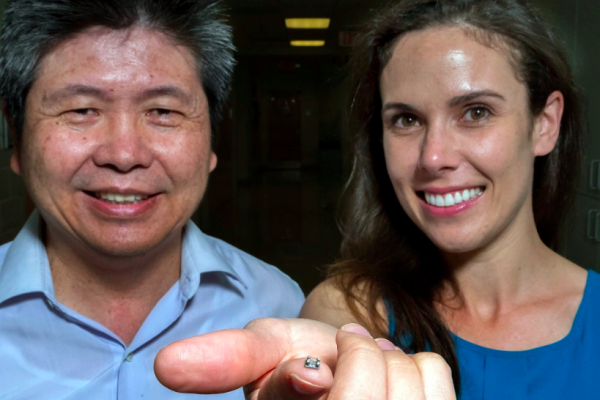
In Perfect Alignment: Dental Researcher Creates Braces of the Future with 3D Printing
With Dr. Christina Jackson, instructor at UNC School of Dentistry
Getting braces for straighter teeth is a rite of passage for many adolescents and an increasing number of adults. Wouldn’t it be great to have an orthodontic option that is comfortable and that other people can’t see? Christina Jackson, who completed the orthodontic specialty program and serves as an instructor at UNC School of Dentistry, is launching a venture that uses 3D printing to create individually customized brackets that combine comfort and aesthetics. But, before she could use her innovation to better align teeth, she first had to line up the right resources at UNC: market research and patent services, legal advice, grant writing assistance and others. Hear how her resourceful approach kept her innovation journey on the straight path.
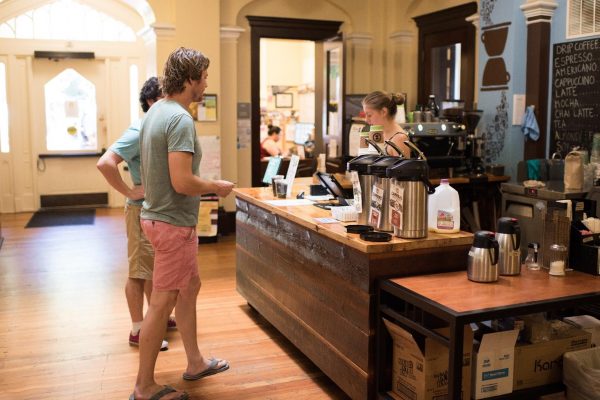
Baristas and Builders: The Launch of UNC's Student-Run Coffee Shop
With Lauren Eaves and Scott Diekema, Co-Founders of The Meantime Coffee Co.
When a small group of UNC students set out to launch a full-service, student-run coffee shop on campus, there were a lot of days they thought it would never happen. Hear about the entrepreneurial path these students traveled to get their idea off the ground. What was hardest about learning to operate a business? Why are they are big believers in organizational values? And how are they handling change management?
Fashion Magazine Founders Talk Team Culture
With Alexandra Hehlen and Remington Remmel of Coulture Magazine
Coulture Magazine, the premier fashion lifestyle publication at UNC-Chapel Hill, has taken campus by storm. What began as a lunch conversation between Alexandra Hehlen and Remington Remmel — both recent Carolina alumni — blossomed into a full-fledged operation with 180 staff members. Created by students for students, the magazine offers hands-on opportunities for students in modeling, photography, writing, design and other areas. Learn about the ups and downs the team went through to bring the magazine to where it is today.
How Entrepreneurial Builders Energize the Economy
With Jim Clifton and Sangeeta Badal of Gallup
What’s the difference between a builder and an entrepreneur? How can a builder’s mentality help you create a business, nonprofit or initiative that makes an impact? Listen as Jim Clifton, chairman and CEO of Gallup, and Dr. Sangeeta Badal, a principal scientist with the Entrepreneurship & Job Creation Initiative at Gallup, discuss tools that can help you identify your best approach to building something of your own. Based on findings from their book Born to Build, Clifton and Badal discuss why a focus on building will power the future economy.
The Power of Teams, Tech and Work Ethic
With Taylor Rhodes, UNC alumnus and CEO of SMS Assist
Tune in to a conversation with Taylor Rhodes, an alumnus of the UNC Kenan-Flagler Business MBA program and CEO of SMS Assist. Find out what he’s learned leading this company, which works at the intersection of the cloud and facilities management. He shares his story and discusses the importance of teams and mentorship to the entrepreneurial process. From serving in the U.S. Marine Corps to building great teams in the business world, Rhodes talks about why a focus on team culture, an eagerness to learn and a passion for hard work are ingredients for success.
Entrepreneurial Lessons from the Hardwood
With Bill Aulet, Martin Trust Center for MIT Entrepreneurship and MIT Sloan School of Management
Hear from serial entrepreneur Bill Aulet of MIT as he discusses how the lessons he learned growing up on the basketball court taught him the basics of entrepreneurship. Find out how fundamentals like collaboration, practice, and recruiting the right teammates that he honed as a player now help him as he works to change the way entrepreneurship is understood, taught and practiced around the world.
Elements of the Entrepreneurial Adventure: Ideas, Timing and Technology
With Drew Sechrist, UNC alumnus and early executive at Salesforce
In the final episode of this three-part series, hear from Drew Sechrist, a UNC-Chapel Hill alumnus and early executive at Salesforce. Drew shares how a motorcycle ride through Mexico gave him an idea for an entrepreneurial project that he’d pursue during his post-Salesforce career. What did Drew learn about the timing of an idea, market readiness and technology development? And what connection does he see between adventure and entrepreneurship.
Turning the Dot-Com Bust into a Business Boon
With Drew Sechrist, UNC alumnus and early executive at Salesforce
In the second of this three-part series, hear from Drew Sechrist, a UNC-Chapel Hill alumnus and early executive at Salesforce. In this episode, Drew discusses the journey of a serial entrepreneur and his post-Sales Force adventures. Find out how Drew and the Salesforce team turned the volatile period after the burst of the dot-com bubble turned into an lucrative new market opportunity that the company rode to new heights.
An Insider's Look: When Salesforce Was a Startup
With Drew Sechrist, UNC alumnus and early executive at Salesforce
In the first of this three-part series, hear from Drew Sechrist, a UNC-Chapel Hill alumnus and early executive at Salesforce. Drew shares his amazing ride building Salesforce’s stratospheric sales engine, his perspective on recognizing opportunities and how he’s learned to find passion and meaning in his work.

 | UNC-CH
| UNC-CH



